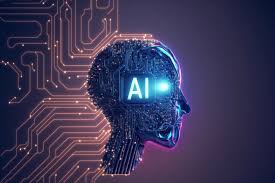
We face a significant dilemma as educators today: the increasing use of AI tools by students to enhance their academic work.
This is particularly true in writing assignments. The phenomenon raises complex ethical and pedagogical questions about the nature of learning, plagiarism, and the role of technology in education.
Firstly, the prevalence of tools like Grammarly and more advanced AI writing assistants allows students to produce polished writing quickly and effortlessly. This poses a direct challenge to traditional methods of teaching writing, which emphasize critical thinking, creativity, and mastery of language. As I've experienced, students can submit essays that appear well-crafted but lack the genuine effort and understanding that traditional assignments are meant to cultivate.
Moreover, the issue extends beyond individual assignments; it's about the integrity of the educational process itself. When a large portion of students opt to use AI to generate their work, it undermines the evaluation and assessment systems that are designed to measure genuine learning and development. It also places educators in a precarious position of having to detect and address academic dishonesty effectively.
An analogy of discovering a house infested with mice aptly captures the feeling of discovering widespread AI usage among students. The initial shock leads to a deeper concern about the long-term implications for education. If students rely on AI for writing tasks, what happens to their ability to think critically, develop their voice, and engage deeply with course materials? These are fundamental skills that go beyond the ability to write grammatically correct sentences.
Looking forward, there are contrasting perspectives on how to address this issue. Some educators advocate for integrating AI into the classroom as a tool for generating ideas or providing feedback, rather than replacing student effort entirely. Others argue for stricter policies against AI use in assignments to preserve academic integrity and the educational process's authenticity.
Ultimately, the debate around AI in education reflects broader societal questions about the role of technology in shaping human activities and interactions. As AI continues to evolve, it will be crucial for educational institutions to adopt policies and practices that balance technological advancements with the foundational goals of education: fostering learning, critical thinking, and intellectual growth.